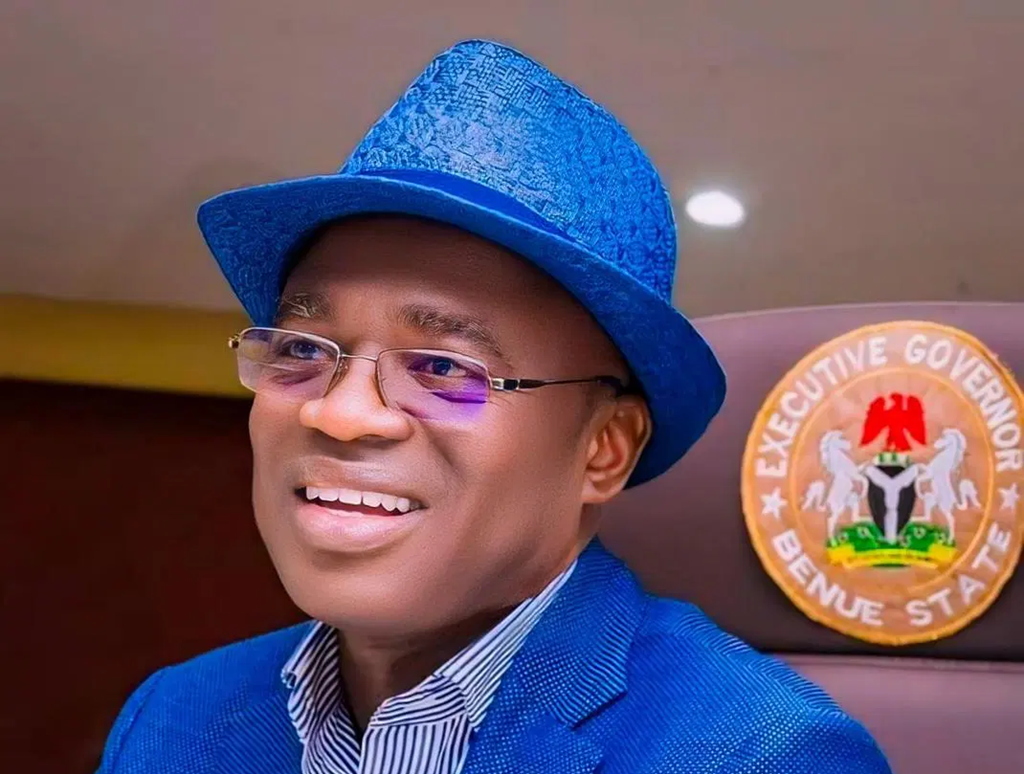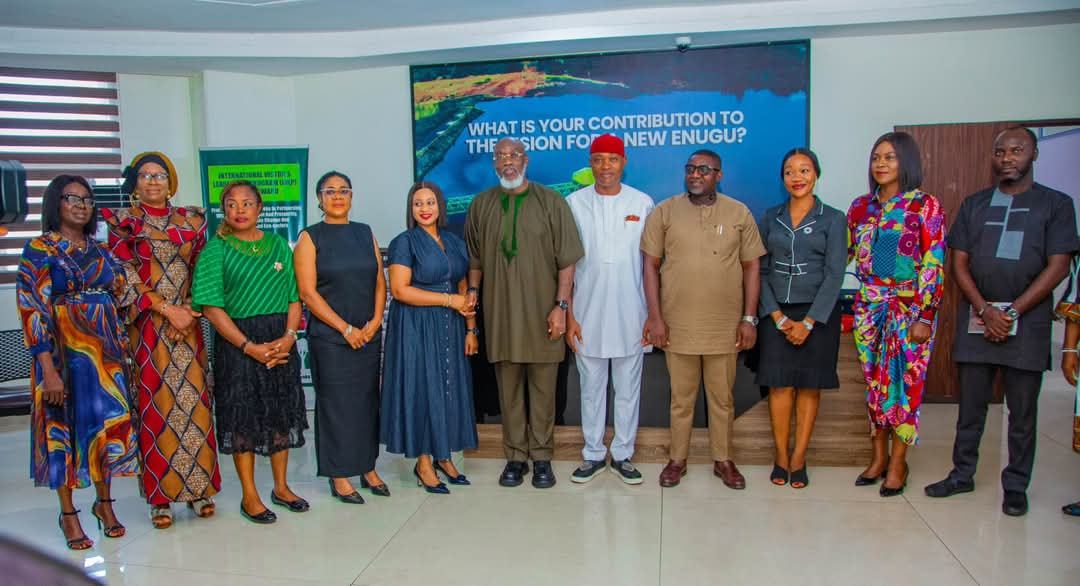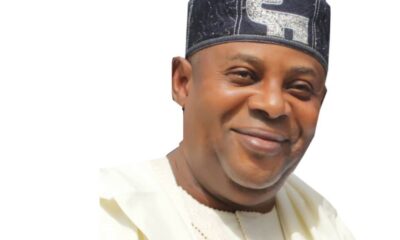News
264 Million in Nigeria, Others Malnourished – IMF


The International Monetary Fund on Tuesday said the COVID-19 pandemic had led to a 20 per cent increase in the number of undernourished persons in Nigeria and other Sub-Saharan African countries to 264 million in 2020.
The Deputy Managing Director, IMF, Antoinette Sayeh, made the disclosure in Washington during a conversation on ‘Supporting Food Security in Sub-Saharan Africa amid the COVID-19 Pandemic and Climate Change.
A statement on the Fund’s website quoted Sayeh as saying, “The Sub-Saharan Africa has made substantial economic and social progress over the past two decades. Yet, the region is facing difficult challenges, including vulnerability to climate change .
“Indeed, we have seen a marked increase in the frequency and intensity of natural disasters, which are driving the desertification of the Sahel, for example, and threatening growth, employment opportunities and food security. Climate change can also act as a multiplier for conflict and fragility in the region.
“The COVID-19 pandemic has also disrupted production, imports and supply chains of food, resulting in volatile and rising food prices. And that, along with falling incomes from the pandemic, has led to an increase in the number of undernourished in the region by 20 per cent in one year to reach 264 million in 2020.
She added, “It is also deeply worrisome that the global recovery that is now taking hold is driven by only a few countries that have had greater access to vaccines and resources, leaving others, especially low-income countries, at greater risk of falling behind. In this context, safeguarding food security is clearly a daunting challenge for sub-Saharan Africa.”
According to Sayeh, due to the low vaccination rate in the region (2.5 per cent), COVID‑19 will continue to claim more lives in the region.
She said there was a need to safeguard food security and increase the efficiency of public expenditure by gradually phasing out agricultural subsidies.
The IMF deputy managing director added that these subsidies would come at a high fiscal cost, adding that “across 10 sub-Saharan African countries we have data on, the cost ranged from nine per cent to 45 per cent of public agricultural spending (or some 1.5 per cent of the GDP on average) in 2014.
“Country experiences from the region, however, suggest that the contribution of agricultural subsidies to improving food security and reducing poverty has only been weak. Policymakers should channel the savings resulting from subsidy reforms toward strengthening social protection through cash transfers,” she said.
“The additional resources could also be invested in climate-resilient infrastructure, such as irrigation systems and storage facilities that would help weather recurring droughts and floods. Reforms to safeguard food security must also include facilitating fair competition, trade integration, and enabling digitalisation – all of which will be critical to attract much needed private sector investment,” she was added.
News
‘If You Want It Dirty, You’ll Get It Dirty’, Benue Diaspora DG Escalates Threat Against National Record Reporter
By Our Reporter


The Editor-in-Chief of National Record, Iduh L. Onah, has raised alarm over what he described as ‘grave threats’ issued against one of the online newspaper’s reporters, Mr. Amos Aar, by the Director-General of the Benue State Directorate of Diaspora Linkages and Investments, Professor Abraham Tartenger Girgih.
In a letter dated June 25, 2025, addressed to Prof. Girgih and made available to the press, National Record condemned what it called “unwarranted threats” following the publication of a report on the funding challenges being faced by the Directorate under the DG’s leadership since its formation in 2024.
According to Onah, while the publication welcomes robust engagement in the form of rejoinders on stories perceived to contain among other things misinformation, misrepresentation or distortion, no one has the right to issue threats.
“While it is within your right to respond to perceived misinformation or misrepresentation and distortion or outright fabrication, in any publication, it is, however, beyond that right to issue a threat as grave as “dire consequences”, Onah stated.
The Editor-in-Chief further noted that the situation escalated after the publication of a follow-up report when Prof. Girgih called the correspondent and made what the paper considers to be a further threat.
“After the publication of the threat and other claims in your rejoinder, you again went ahead to issue what we deemed to be further grave threat when you stated: “…if you want it dirty, you will get it dirty”, among other words perceived as veiled threat, in a telephone conversation you had with our correspondent shortly after you may have read our follow-up report,” stated the Editor-in-Chief.
The management of National Record expressed deep concern for the safety of its correspondent and other staff, especially given the hostile tone of Prof. Girgih in his conversation with the reporter.
The media organization said it is taking steps to notify security agencies, the Benue State Government, and professional journalism bodies about the threats, while also demanding a written assurance from Prof. Girgih that no harm will befall Mr. Aar or any member of the newspaper’s staff.
“We demand from you a written assurance of Mr Aar’s safety from harm and that of our other staff, and a further commitment to desist from harassing, heckling, intimidating or bullying us in whatever manner,” Onah wrote.
While no official response had been received from Prof. Girgih as at press time, National Record expressed hope for civility going forward and reiterated its commitment to its constitutional mandate as a stakeholder in the Fourth Estate of the Realm.
The letter reads in full:
Professor Abaham Tartenger Girgih
The Director-General
Directorate of Diaspora Linkages and investments
Makurdi, Benue State.
Dear Prof. Girgih;
THREATS ON OUR PERSONNEL AND ORGANISATION
On behalf of the Management of Contest Communications Limited, publishers of National Record, I bring you warm fraternal greetings.
We wish to express our dismay and concern over your threat on our Benue State Correspondent, Mr Amos Aar, in particular, and generally, our entire organisation, as contained in your rejoinder to a report we had published on challenges being faced by the agency which you head.
While it is within your right to respond to perceived misinformation or misrepresentation and distortion or outright fabrication, in any publication, it is, however, beyond that right to issue a threat as grave as “dire consequences”.
After the publication of the threat and other claims in your rejoinder, you again went ahead to issue what we deemed to be further grave threat when you stated: “…if you want it dirty, you will get it dirty”, among other words perceived as veiled threat, in a telephone conversation you had with our correspondent shortly after you may have read our follow-up report.
While we intend to take steps to formally note these threats before the appropriate security agencies, the Benue State Government under which you are serving, as well as our professional organisations nationally; we wish to inform you that the life of our Benue State Correspondent, Amos Aar, and our entire personnel, remains insecure in the context of your threats.
In that regard, we demand from you a written assurance of Mr Aar’s safety from harm and that of our other staff, and a further commitment to desist from harassing, heckling, intimidating or bullying us in whatever manner from carrying out our constitutional mandate as key stakeholders in the Fourth Estate of the Realm.
As we look forward to relating with you in formal, civilised manner, and prompt action on our demands, please, accept the assurances of our esteemed regards.
Iduh L. Onah
Editor-in-Chief
National Record (https://nationalrecord.com.ng)
News
Gov Mbah Inaugurates Committee to End Gender-Based Violence in Enugu


The Enugu State government has inaugurated a steering committee to eliminate Gender-Based Violence, GBV, in the state, declaring zero tolerance for the social malaise.
The inauguration took place at the Government House Enugu.
The panel, which is chaired by the Commissioner for Children, Gender Affairs and Social Development, Mrs. Ngozi Enih, draws its membership from the Nigeria Police Force, Ministry of Agriculture and Agro Industrialisation, Ministry of Local Government, Rural Development and Chieftaincy Affairs, Ministry of Human Development and Poverty Reduction, Ministry of Trade, Investment and Industry, Ministry of Justice, Ministry of Health, Ministry of Education as well as the Civil Society.
Inaugurating the panel known as the Steering Committee for Strengthening Institutional and Community Responses to End Gender-Based Violence/Domestication of Enugu State Gender Policy using the Oputa Panel approach, Governor Peter Mbah restated his administration’s commitment to not bringing perpetrators of GBV to book, but also putting in place proactive measures – activities, infrastructure, and systems in place to prevent them.
Mbah, who was represented by the Secretary to the State Government, Prof. Chidiebere Onyia, said, “We take gender-based violence seriously. We have zero tolerance for it, and in Enugu State, we are ready to go the extra mile to deal with it.
“If you notice, the government has selected people that are very committed to this goal. This is not an activity where we just want to check-off the list. We will track this. We will monitor this, and we will have quarterly engagements on the successes that this particular committee has achieved in terms of reference that we are going to send.
“We will tighten those terms of reference indicators, so that we monitor what we are doing both in terms of cost input and the value added. It’s very important to us. Many people will be involved – civil society, the police and various ministries.”
He however, said that the effort was to protect everyone, men and women alike, as GBV was not restricted to any gender.
“The whole idea is to hold people responsible that are involved in matters relating to gender violence and deter people that by culture or by association get involved in that, protect women, protect our children, and in the case of violence against men, protect our men because most times we misconstrue gender violence to mean women, but it can also be men too.
“We encourage our men to speak out and to make sure they understand that the policy that Enugu State is soon going to domesticate is for everyone, and not only for the female gender,” he stated.
In her remark, Mrs. Enih, explained that the Oputa Panel approach was inspired by the need to cover all local peculiarities in domesticating the policy on GBV, restarting government’s confidence in the members of the panel.
“The approach we are going to use is the Oputa Panel approach, and in the Oputa Panel approach, we are going to tour the 17 Local Government Areas to get firsthand information about what our people are going through because policy is meant for the people, and a policy should suit the people.
“Again, every community has its peculiar problems, so that’s why the government decided that if we have to domesticate the gender policy, we have to hear from the people who own the policy and know the changes that they desire to see. That is the reason we are using this approach.
“The committee members are to also serve as judges. As we gather this information from our people, we will come back to tailor it in a way to suit the people of Enugu State, and then our policy is ready.
“We want the people to know that there is a gender policy for them. I can assure you that when the people are aware that there is such a policy, they will seek for the enforcement of that policy. So, this is not going to be one of those policies that will just lie on the shelf,” she said.


Digital solutions provider, Globacom, has congratulated Christians in Nigeria on this year’s Easter celebration, and urged them to emulate the noble qualities of Jesus Christ.
The company, in a goodwill message to the Christian faithful in the country, lauded their perseverance through the Lenten period which preceded Easter. It enjoined them to always promote the ideals of selflessness, love and peace among all as a way of demonstrating the virtues of the exemplary life of Jesus Christ.
“Peace, love and sacrifice are the central message of Easter. Christ offered himself in atonement for the sins of the world and he lived a life which made Him an eternal symbol of peace and goodwill for mankind”, Globacom added.
The company enjoined all Nigerians to share in the lessons of promoting selflessness, a necessary ingredient in the growth and development of every society. It also enjoined all Nigerians to join hands to make Nigeria a better place for all.
Easter is celebrated yearly at the end of the Lenten season of fasting and prayer considered as a ritual of purification for the Christian faithful. It also precedes the crucifixion of the Lord Jesus Christ on Good Friday and His eventual resurrection on Easter Sunday.
The company assured its customers of seamless voice, data and Short Messaging Service (SMS) during and after the Easter celebrations, while urging them to avail themselves of the various data and voice offerings on the network.












